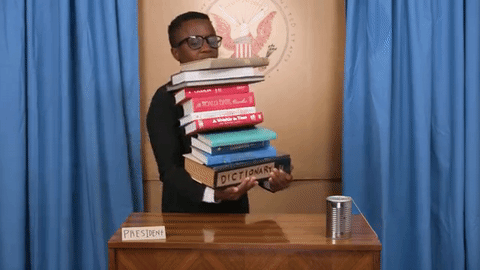Latest news about Bitcoin and all cryptocurrencies. Your daily crypto news habit.

I have to admit, I am in quite the unique position in my journey of ‘job-hunting.’ Unfortunately, I won’t share it yet given that I am still ‘experiencing it’ and like any storyteller, we would like to share the whole story once it has ended so that we can reflect on it.
However, in the midst of intensely ‘networking’ and being active by writing messages on LinkedIn, I have to say my fingers have gotten dusty. From the moment I graduated, I had not coded till now and having experienced this,
I recommend you not to do this.
You start feeling your fingers crack as you begin to type more actively while you feel the wires sparking in your mind, trying to remember all that you learnt. It’s painful and regretful I would say. However, it is totally understandable given it is difficult for one to code in such stressful times. Especially when jobs are something our lives somewhat depend on.
So, then comes the question given that the route many of us takes is this one:
“How does one get back into coding”
Well, if there’s another way to explain the situation, it’s like exercising. People who have very attractive and fit bodies exercise regularly but the moment they stop exercising for a day, they feel the burdens on their shoulders whilst they attempt to workout again. It gets even worse when you wait for a longer period of time and then realise that it’s even harder to start again than it was before. However, it’s not impossible and the most important thing once we have been through the factory of coding, is to simply
practice, practice and practice.
Setting up a learning plan:
Given I’ve just stated the above, I believe the best solution that I have come across so far is setting up a learning plan.
It sounds very daunting given that there’s an oyster of technologies to learn in the sea.
How does one prioritise what to learn?
How does one discipline themselves to code every day?
Where does even one begin with planning?
My coding bootcamp has ended…What happens now?
When many of us think about setting up a learning plan, it seems like a struggle to choose. Life would be so much easier or quicker if we could choose between two flavours of ice-cream rather than a row of 50 ice-cream flavours right? Think about it. We would be able to taste our chosen flavour rather than spend hours trying to pick a flavour we really can savour (see what I did there)
However, I’ve learnt over the few days that procrastination and voice empowerments that all the questions above doesn’t matter.
What matters is that we do, by which is write code everyday.
Of course, then the next dilemmas come of what we choose to do and how far of a stretch do we want to take our rusty skills.
 Me with all the things I wanted to learn
Me with all the things I wanted to learn
I can say for first few days, I struggled hard to build projects. I remembered the concepts and what comes next, but to actually remember the syntax and solve it step by step gave my fingers the shivers. It was like seeing a machine covered in moss trying to run with the gunk inside it. I knew that if the struggle would be too real and hard, I would never want or to start to code again. Hence, I needed to find a better way.
For me, abetter way was to implement a smaller task. As long I kept writing code everyday, that was already a step forward. Hence, to those of you who is taking this title’s advice, my advice for it would be to start small and be okay with yourself starting small.
I know when we all come out of a bootcamp that we want to do cool projects, and show off all these cool skills and amazing things we can do. However, you are not going to move forward or find it very difficult to do so if you run before you can walk. Like exercise, you can’t just go do 50 push-ups when you haven’t do push-ups in 5 months. The pain will be real and you won’t find the motivation to keep going anymore.
In other words, it’s better to try take a baby step everyday for 500 days than take 100 steps and fall flat.
Consistency in progress is the best progress.
Starting tips to get back on your feet:
In my week experience of trying to get myself to code, I am currently following some post-course material that coaches wrote. I have to say it is very useful to have a guide that will get rid of the rust in your gears.
Although the programme to get my gears up and running are only for two weeks, it sets out a list of things you could do to get you motivated to code projects. It also give you the drive to set out to plan your own learning plan, which is the vital point all developers want to be at. Now, I don’t have all the solutions and I’m sure there are more out there but these are my options in case I ever get stuck.
- If you know there’s a link to a post-course somewhere, do it! It’ll help you get on your feet and plus, it’s nice to see the two bullet points on your list completed. Appreciate what you have done rather than sulk on the many things you have to do.
- Why not reflect about your skills? Write all the technologies you know and rate it out of 1 to 10. See what are your stronger points and weaker points. Then, make a decision to do a kata base on your language preference and skills.
- Write a list of coders that inspire you and write why these people inspire you. I find having a mentor sets a somewhat bar of how skilled you want to be. Is it their approach? Is it their discipline? Is it what they read?
- Perhaps, write the skills that you think you have and what skills as a developer you would like to have. It could not even be about code but commuting to the tech community.
- Do Katas! There’a bunch of katas on code-wars or if you search on Google, that are small projects. You might look at these and think, piece of cake but here I sit doing the “String Calculator” having done only two steps in three days when there are nine.
- Do a Udemy course that builds projects whilst teaching the language! Udemy courses are great for learning languages or areas of code that you weren’t sure about. It also gives you more projects to show your passion on Github.
- Do a collaboration with one of your friends or another developer? If it’s hard to motivate yourself, get someone else to work with you so the journey can be more fun!
Yeah, I know what you are thinking. Why do katas? Why have a repo that sets up a framework? Why have something that can’t be even counted as a project? I am a victim of these thoughts as well but I can concluded that to show progress is valuable. You never know, maybe your repo might be a helpful guide for someone learning how to code or maybe your repo might be more important to others more than you know it!
Unless you are tracking and know exactly what people are doing with your repos, or looking at your repos or even just looking on your Github, you never know. And believe me, it’s great to live for the unexpected surprises then live with decisions we for sure aren’t certain about.
So, I sit here with you (if you are a developer) and pledge: no more excuses.
Whether you stopped yesterday, the past few days, weeks or months, it doesn’t matter! We have time and yes, it’s hard getting back into it but our coding skills that need our care for them to grow is somewhere still in us. After all, if we did a bootcamp, our coding skills have not disappear. They are just covered in dust that all we have to do, is sweep it away.
Let’s take baby steps and get coding!
Fun fact of the day:
Coming from a creative background, I really see the similarities in both design and code. After all, they are both ‘tool industries’ that will keep adapting and require time for one to really get into their craft.
Having connected and talked with so many others from big or small companies about this matter, I can confidently argue that coding is a creative process and so it’s normal to feel a blockage. It’s normal to feel you need a break to refresh your senses and replenish your ideas.
It’s all part of the progress, and just to emphasise my point on how progress matters, in design, that is what a creative process is all about. Progress.
Companies and clients like to talk about the process of ideas, how you think and the variety of approaches you had to solve the problem. In fact, it’s much more interesting for them in the sense that it shows you how far you’ve come in your work and how you create, as a creative.
Given I have strongly argued that creative processes are about showing the progress (or in a cliche way, ‘the journey’), this makes it okay to feel blockages and makes it okay to show unfinished projects or small things.
We should always remember progress is what matters, even in the little things we do so start appreciating the baby steps today, can keep appreciating them everyday.
Episode 47: How to sweep your dusty fingers and keep active to code was originally published in Hacker Noon on Medium, where people are continuing the conversation by highlighting and responding to this story.
Disclaimer
The views and opinions expressed in this article are solely those of the authors and do not reflect the views of Bitcoin Insider. Every investment and trading move involves risk - this is especially true for cryptocurrencies given their volatility. We strongly advise our readers to conduct their own research when making a decision.

